DISCOVER YOUR DESTINY

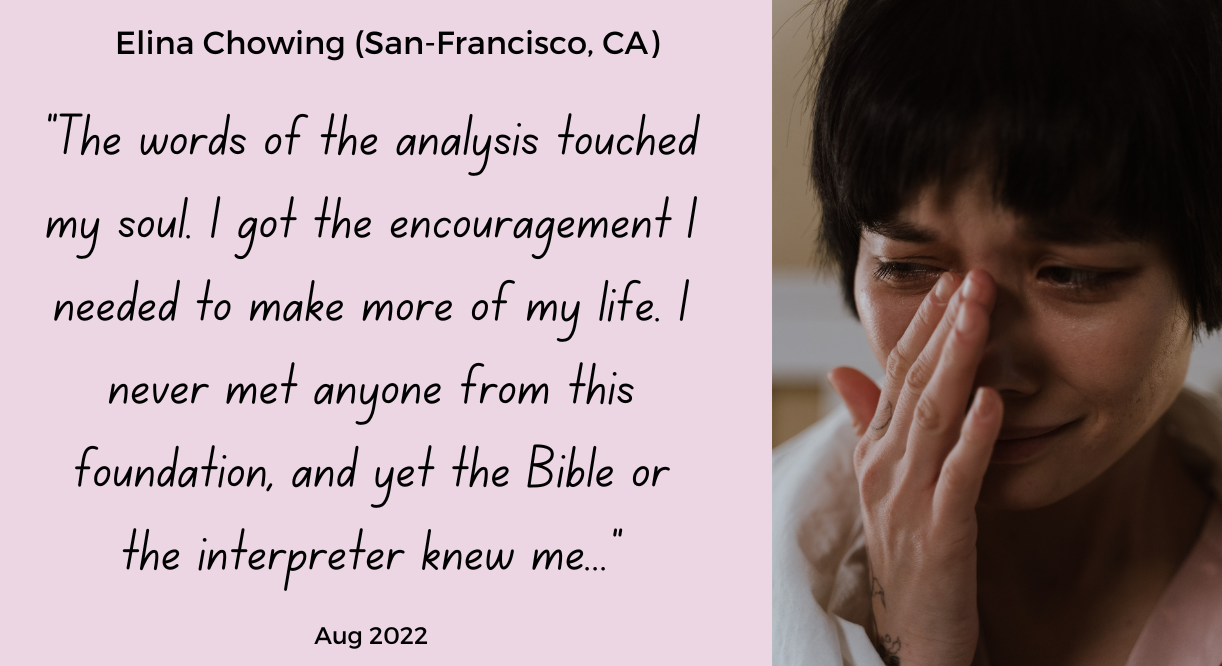
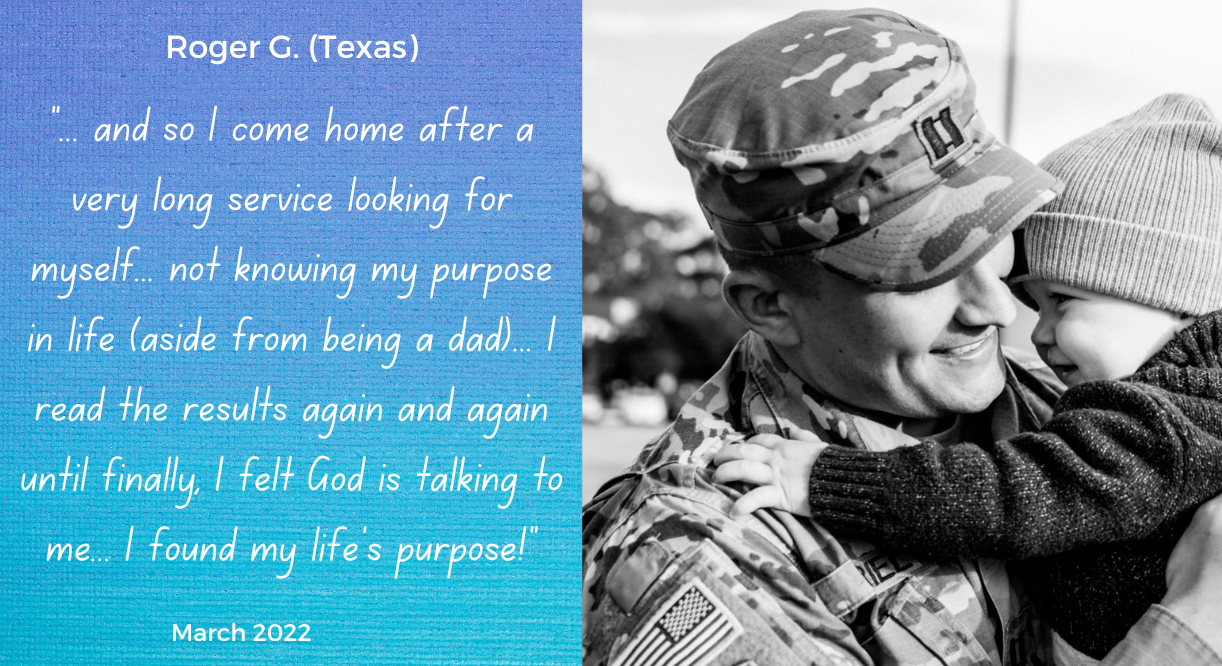

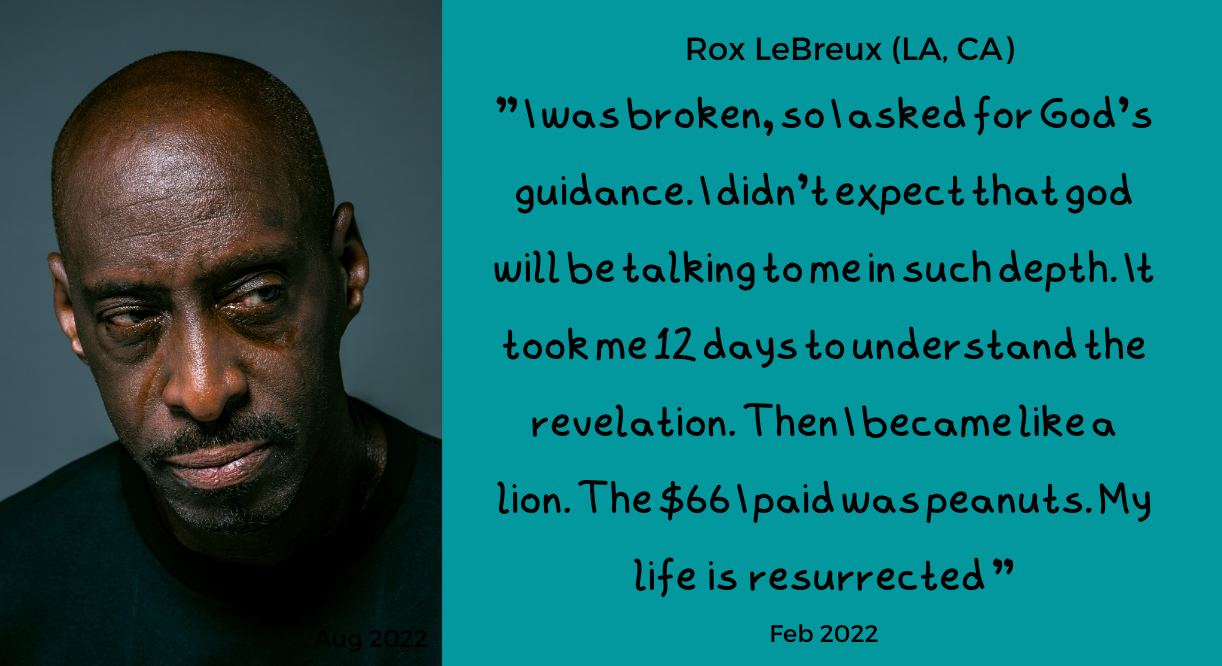
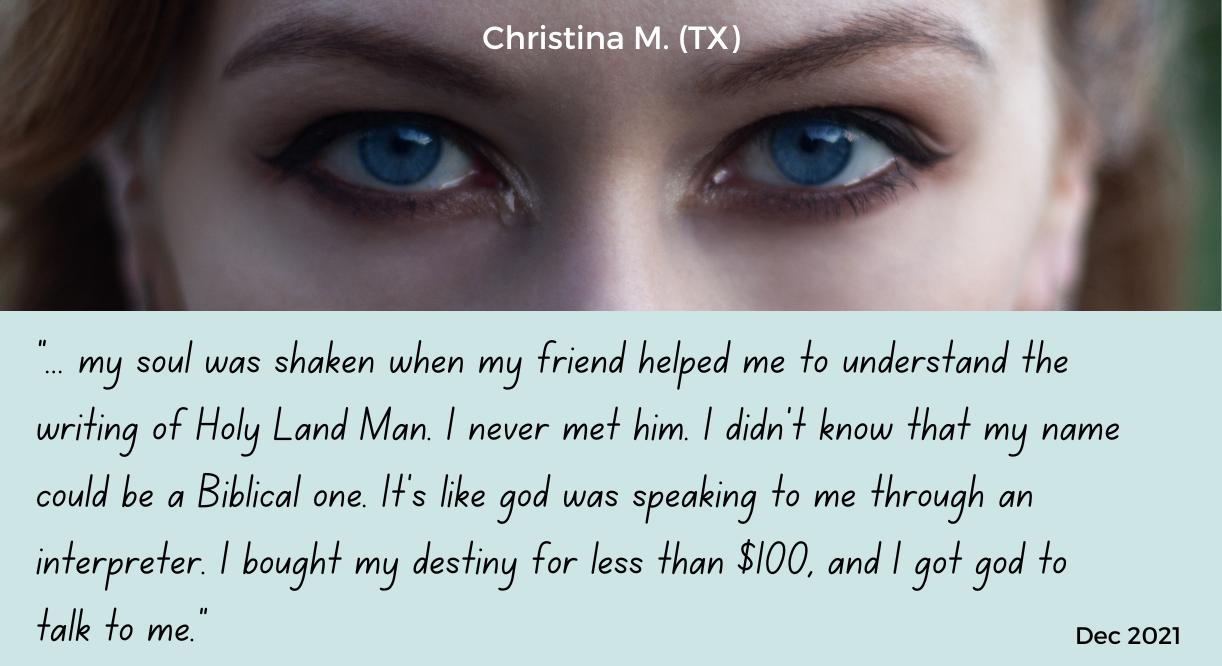
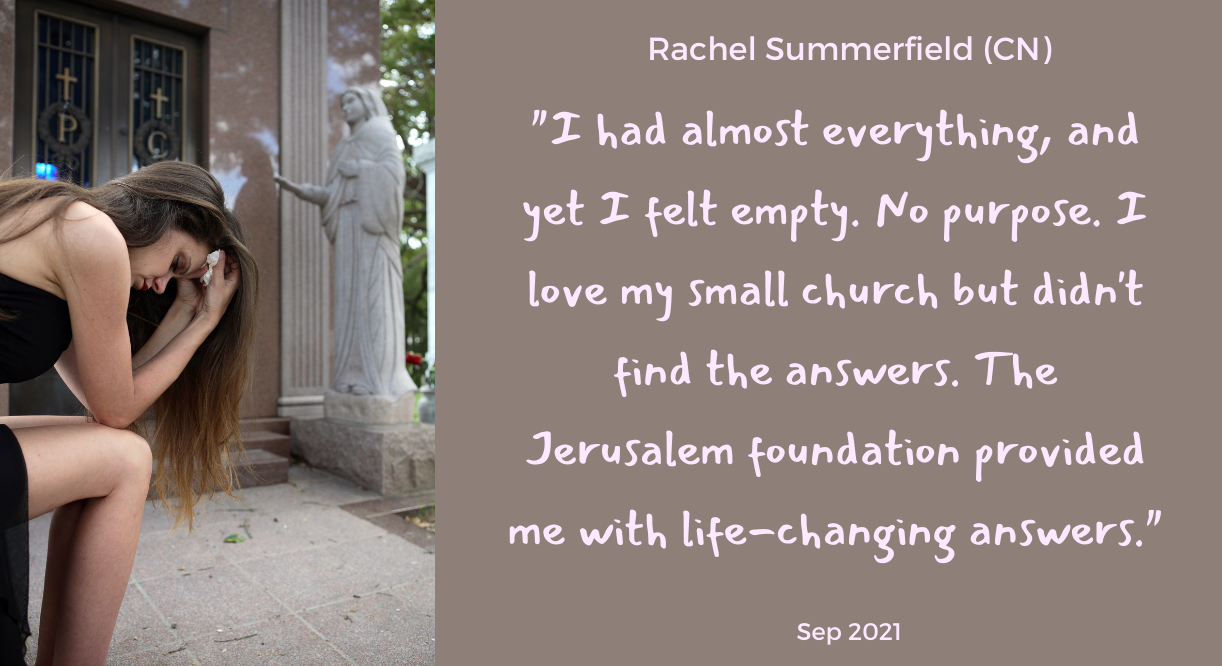
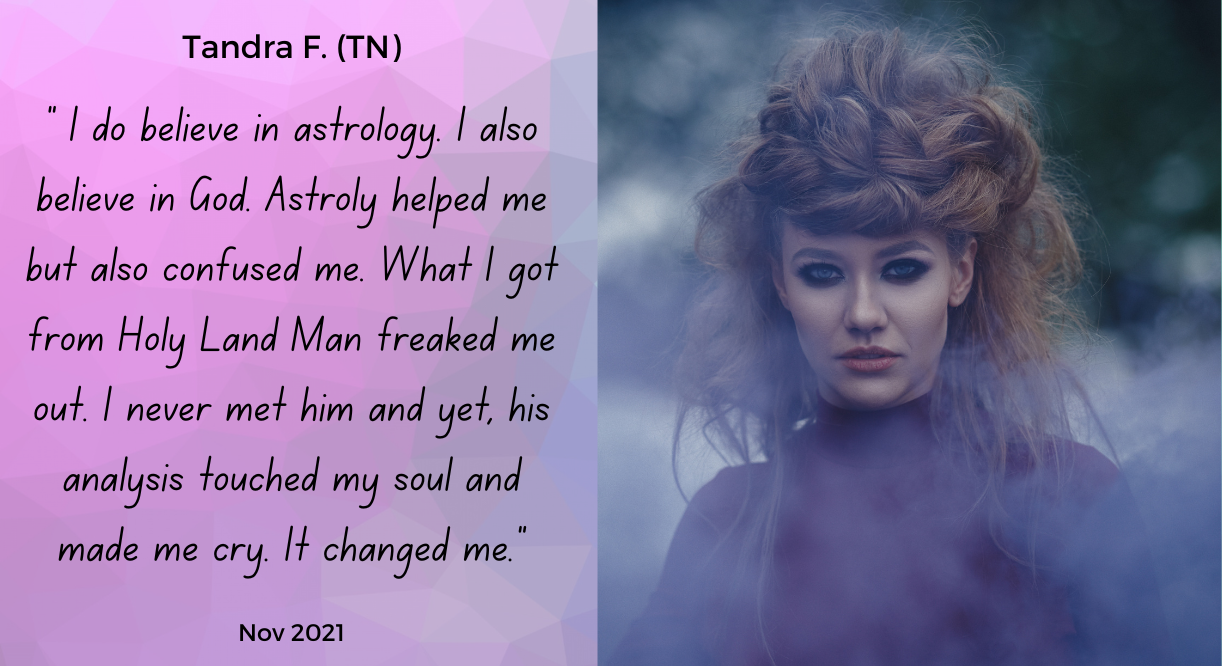
Free to become a member of our nonprofit.
Biblical name: members can donate any amount after receiving results.
| Service | member donation | regular |
| Name & code | free | $22 |
| Simple: 1 verse code match, interpretation, image, audio | $12 | $38 |
| Extended 2: 2 verse code + verse number matches, 2 interpretations, 2 images, 2 audio | $26 | $55 |
| In-depth 4: 3 verses matches, 3 interpretations, 3 images, 3 audios, and personal analysis by Holy Land Man | $37 | $120 |
EXAMPLE
Rachel Goldsmith
רחל גולדסמית


In the original Bible, verse 2 Samuel 22:13, “מנגה נגדו בערו גחלי אש,” is translated as “From the brightness before Him coals of fire were kindled.” This verse is part of a song of praise that David sings to God after he has been delivered from his enemies. The phrase “מנגה נגדו,” “from the brightness before Him,” suggests that God’s presence is so powerful and radiant that it is like a bright light that consumes everything in its path. The phrase “בערו גחלי אש,” “coals of fire were kindled,” suggests that God’s presence is so intense that it causes a burning, consuming fire.
This verse can be interpreted as reflecting the personality of a woman like Rachel Goldsmith, who is driven by a desire to know her destiny and wealth. Rachel may be the type of person who is constantly seeking answers and trying to understand her place in the world. She may be drawn to the idea of God’s radiant presence and the consuming fire that it represents, as it suggests a sense of purpose and direction.
The phrase “מנגה נגדו,” “from the brightness before Him,” could be seen as reflecting Rachel’s desire to know her destiny and understand her place in the world. The word “מנגה,” “brightness,” suggests a sense of clarity and understanding, while the word “נגדו,” “before Him,” suggests a sense of guidance and direction. Rachel may be seeking these things in her life, looking for a sense of purpose and meaning.
The phrase “בערו גחלי אש,” “coals of fire were kindled,” could also be interpreted as reflecting Rachel’s desire for wealth and success. The word “גחלי אש,” “coals of fire,” suggests a sense of intensity and passion, while the word “בערו,” “were kindled,” suggests a sense of action and movement. Rachel may be driven by a desire for wealth and success, fueled by a passion and intensity that drives her to take action and make things happen.
This verse from the original Bible could also be interpreted as reflecting Rachel’s ambition and determination. The phrase “מנגה נגדו,” “from the brightness before Him,” suggests a sense of clarity and focus, while the phrase “בערו גחלי אש,” “coals of fire were kindled,” suggests a sense of intensity and drive. Rachel may be driven by a strong ambition and determination to achieve her goals and realize her aspirations.
In conclusion, the verse 2 Samuel 22:13 from the original Bible, “מנגה נגדו בערו גחלי אש,” can be interpreted as reflecting the personality of a woman like Rachel Goldsmith, who is driven by a desire to know her destiny and wealth. This verse suggests a sense of purpose, direction, clarity, focus, intensity, passion, ambition, and determination, all of which may be characteristic of Rachel’s personality. The Hebrew language used in this verse adds depth and meaning to the narrative, and it serves as a central point of reference for believers in the Hebrew Scriptures.

Genesis 28:17 is a verse in the original Bible that describes Jacob’s encounter with God at Bethel. This verse is part of the story of Jacob’s journey to Haran, during which he has a dream in which God speaks to him and blesses him. According to the biblical account, Jacob was a patriarch of the Israelites and the son of Isaac and Rebekah.
In terms of a psychoanalysis of Rachel Goldsmith’s personality using this verse, the phrase “יְהוָ֗ה הָֽיְתָ֥ה אֱֽלֹהַ֛י” suggests that Rachel has a strong belief in God and sees him as her personal deity. This could indicate that she has a strong spiritual foundation and a deep faith in God. The phrase “בָּֽאֵ֖פֹעַ הַזֶּ֑ה” suggests that Rachel is open to experiencing God in specific places and times, and that these experiences are meaningful and significant to her. This could indicate that she is open to spiritual experiences and is willing to seek out opportunities to connect with God.
In terms of social analysis, this verse could suggest that Rachel is someone who values her relationship with God and is willing to prioritize it above other relationships. The phrase “יְהוָ֗ה הָֽיְתָ֥ה אֱֽלֹהַ֛י” suggests that Rachel sees God as the most important relationship in her life, and that she values her connection with him above all else. This could indicate that she is someone who is independent and self-sufficient, and is able to rely on her faith in God rather than seeking validation or support from others.
In terms of faith analysis, this verse could suggest that Rachel is someone who is committed to her faith and is willing to put it into action in her life. The phrase “בָּֽאֵ֖פֹעַ הַזֶּ֑ה” suggests that Rachel is open to experiencing God in specific places and times, and that these experiences are meaningful and significant to her. This could indicate that she is someone who is actively engaged in her faith and is willing to seek out opportunities to connect with God.
In terms of relationships analysis, this verse could suggest that Rachel is someone who values her relationship with God above all else, but is also open to building relationships with others. The phrase “יְהוָ֗ה הָֽיְתָ֥ה אֱֽלֹהַ֛י” suggests that Rachel sees God as her personal deity and has a close relationship with him. However, the phrase “וְאָֽנֹכִ֖י לֹ֥א־יָדָֽעְתִּי” suggests that Rachel is open to learning and growing in her relationships with others, and is willing to seek understanding and knowledge from others. This could indicate that Rachel is open to building meaningful and supportive relationships with others, while also maintaining her primary relationship with God as the most important one in her life.
In terms of destiny analysis, this verse could suggest that Rachel is someone who is open to God’s guidance and direction in her life, and is willing to trust in his plans for her. The phrase “יְהוָ֗ה הָֽיְתָ֥ה אֱֽלֹהַ֛י” suggests that Rachel sees God as her personal deity and trusts in him for her needs. The phrase “וְאָֽנֹכִ֖י לֹ֥א־יָדָֽעְתִּי” suggests that Rachel is open to learning and growing in her faith, and is willing to seek understanding and knowledge from God. This could indicate that Rachel is someone who is open to God’s guidance and direction in her life, and is willing to trust in his plans for her.
Overall, the Hebrew Biblical verse Genesis 28:17 suggests that Rachel Goldsmith is someone who has a strong faith in God and values her relationship with him above all else. She is open to experiencing God in specific places and times, and is actively engaged in her faith. Rachel is also open to building relationships with others and is willing to seek understanding and knowledge from others. She is open to God’s guidance and direction in her life, and is willing to trust in his plans for her.

The verse Deuteronomy 1:21 in the original Bible, “See, the Lord your God has given you the land. Go up and possess it, as the Lord, the God of your fathers, has told you. Do not be afraid; do not be discouraged,” is a powerful and inspiring message that speaks to the desire of individuals like Rachel Goldsmith to know their destiny and achieve their goals. This verse encourages Rachel to be bold and courageous in pursuing her dreams, and it reminds her that God is with her and will guide her every step of the way.
The phrase ראה נתן יהוה אלהיך לפניך את הארץ עלה רש כאשר דבר יהוה אלהי אבתיך לך, “See, the Lord your God has given you the land. Go up and possess it, as the Lord, the God of your fathers, has told you,” is a call to action for Rachel. The word ראה, “see,” suggests that something significant is about to happen, and that Rachel should pay attention and take notice. The phrase נתן יהוה אלהיך לפניך את הארץ, “the Lord your God has given you the land,” indicates that God has granted Rachel the opportunity to achieve her goals and fulfill her destiny. The word עלה רש, “go up and possess,” encourages Rachel to take bold and decisive action in pursuing her dreams. This phrase is derived from the root word רש, which means “to possess” or “to inherit.” The phrase כאשר דבר יהוה אלהי אבתיך לך, “as the Lord, the God of your fathers, has told you,” suggests that Rachel’s destiny is already ordained by God, and that she should trust in his guidance and follow his will.
The phrase אל תירא ואל תחת, “do not be afraid; do not be discouraged,” encourages Rachel to overcome her fears and doubts and to have faith in herself and in God. The word תירא, “do not be afraid,” suggests that Rachel may feel fear or anxiety as she pursues her goals, but that she should not allow these emotions to hold her back. The word תחת, “do not be discouraged,” suggests that Rachel may face challenges or setbacks, but that she should not lose hope or become discouraged. These phrases encourage Rachel to be courageous and to trust in God as she pursues her destiny.
The verse Deuteronomy 1:21 in the original Bible speaks to the desire of individuals like Rachel Goldsmith to know their destiny and achieve their goals. It encourages Rachel to be bold and courageous in pursuing her dreams, and it reminds her that God is with her and will guide her every step of the way. The Hebrew language used in this verse adds depth and meaning to the message, and it serves as a source of inspiration and encouragement for believers in the Hebrew Scriptures.
Original Bible fundamentals
Rachel Goldsmith’s 791 is a blend of the energies and attributes of number 7 and number 9, and energies of number 1. Your 7 relates to understanding the self and others, emotions and feelings, spiritual awakening and development, empathic and psychic abilities, introspection and inner-knowing, and study, education and learning. Your 9 encourages setting a positive example, lightworkers and lightworking, philanthropy and humanitarianism, problem-solving, generosity and benevolence, an expansive viewpoint, and endings and conclusions. Your 9 also relates to the Universal Spiritual Laws. However, you 1 relates to creation, progress, inspiration and intuition, new beginnings, striving forward, uniqueness and individuality, inspiration and intuition, motivation and progress. Number 1 encourages us to step out of our comfort zones and reminds us that we create our own experiences and realities.
Rachel Goldsmith רחל גולדסמית 791 encourages you to look forward to new opportunities in your life as they will lead to wonderful new circumstances and situations. Trust your intuition and follow its guidance as each opportunity presents, knowing that they are appearing for important karmic reasons. Trust that they are in direct alignment with your life purpose and lightworking mission.
The Power of Angel Number 791 encourages you to try something new and get excited about your life. Stretch yourself beyond what you think you can do and learn new skills that will help you in other areas of your life. Challenge yourself to do something new and different and break some personal barriers and boundaries. Make a decision to better yourself and your life and be open to the opportunities presenting to you. When you follow your heart you will find yourself growing in wisdom and self-confidence, love, open-ness and compassion.
Your 791 brings a message to keep your thoughts positive and your outlook optimistic in regards to the new opportunities and choices ahead.
Rachel, trust that all is happening in Divine right order and in Divine right time.

